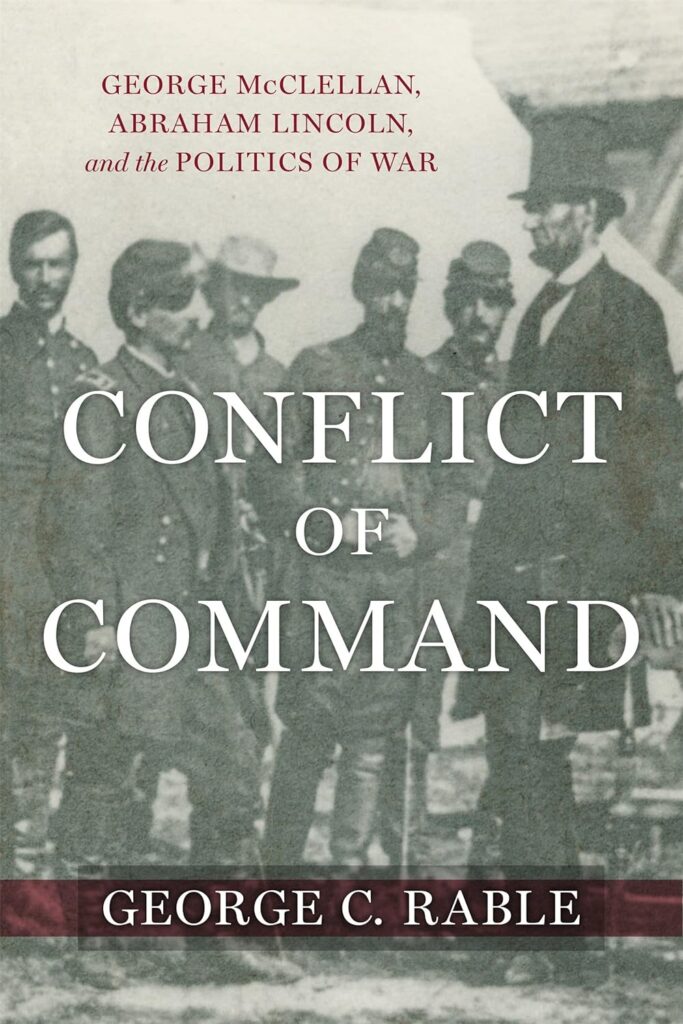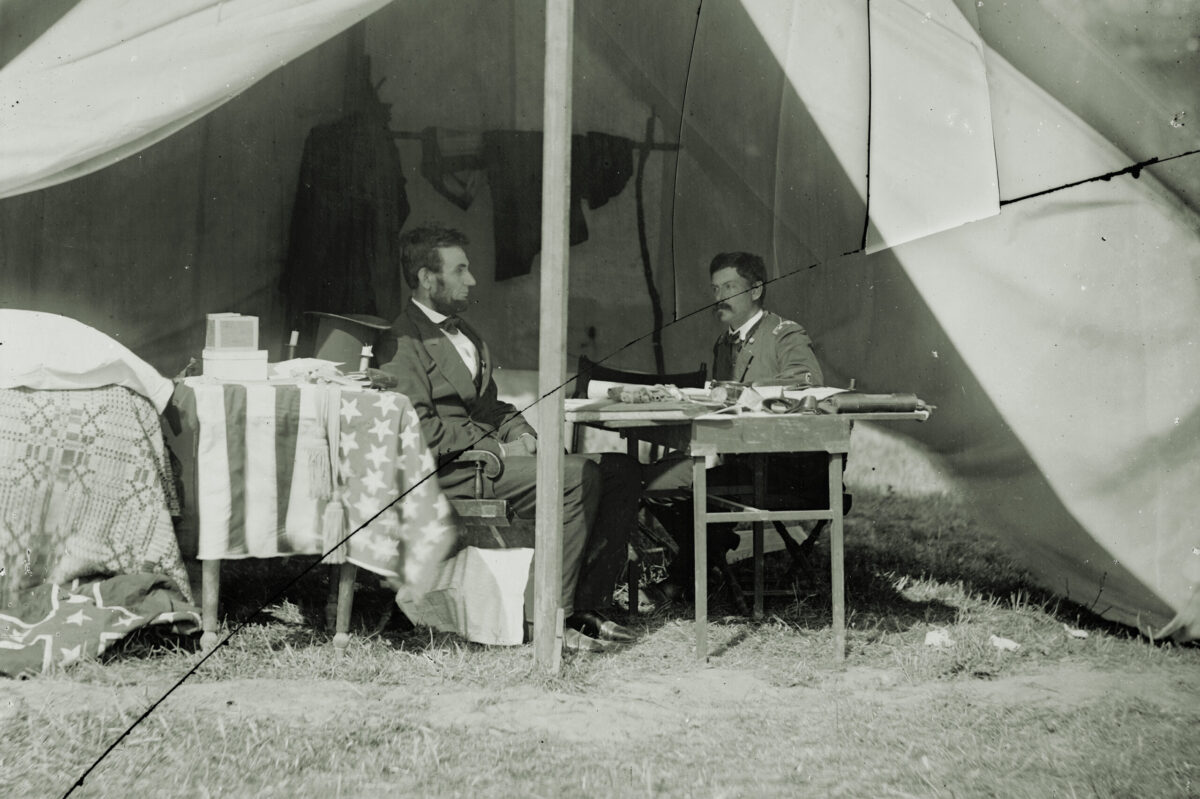On the first page of Conflict of Command, George Rable posits, “People have largely made up their mind about George McClellan—and not in the general’s favor; nor do they seem amenable to rethinking their position.” He then spends 336 pages essentially proving the point. Uninterested in “refighting the military campaigns,” he instead sets out to examine the relationship between Lincoln and his ill-starred general.
The two men, both ambitious, shared a deep commitment to the Union’s preservation and possessed different, but potentially complementary abilities. An adept politician, Lincoln lacked the military know-how of McClellan, who contrariwise proved to be consistently obtuse politically. Although the two men met 57 times over a six-month period early in the war, their potential for an advantageous partnership went unrealized.
On one hand, that failure rested on fundamental strategic disagreements. McClellan advocated one big, meticulously planned campaign to win the war with overwhelming force—hence his Peninsula Campaign of 1862. He opposed emancipation and confiscation, and proved unwilling to spend the number of lives ultimately paid for Union success. Lincoln, pressured by the Radicals for quick military successes, was ever-conscious of the political costs of a general he and many others came to see as far too cautious and secretive.
But the two men, wary and reticent with one another, also failed to connect on a personal level. The well-born McClellan’s frequent excoriations of Lincoln as an uneducated rube in his letters to his wife reveal a deep disdain for his commander-in-chief, as did his frequent refusal to share his military thinking. Lincoln, for his part, was often indecisive, especially early in the war, and nettled the general with his often-unannounced visits to discuss strategy.
But McClellan did some things well. Adept at organizing the Army of the Potomac, he endeared himself to his troops by displaying genuine concern for their well-being. He also insisted on humane treatment for civilians entrapped by the war. Furthermore, Rable notes, whatever his shortcomings, “The replacements for McClellan as both general in chief and commander of the Army of the Potomac proved less than satisfactory.”
The general’s greatest moment may have been the manner in which he accepted Lincoln’s decision in November 1862 to replace him with a reluctant Ambrose Burnside. Rather than accede to credible talk among his junior officers of marching on Washington to force his restoration to command, McClellan quashed such plans and withdrew, amid considerable fanfare, never again to lead Union troops.
Perhaps one of his contemporaries best understood why a man of such promise came to be seen as a failure. “The critics of McClellan do not consider this vast and cruel responsibility,” observed former President Ulysses S. Grant in 1878. “McClellan was a young man when this devolved upon him, and if he did not succeed, it was because the conditions of success were so trying. If McClellan had gone into the war as Sherman, Thomas, or Meade, had fought his way along and up, I have no reason to suppose that he would not have won as high a distinction as any of us.”

Conflict of Command
George McClellan, Abraham Lincoln, and the Politics of War
By George C. Rable, LSU Press, 2023
If you buy something through our site, we might earn a commission.





